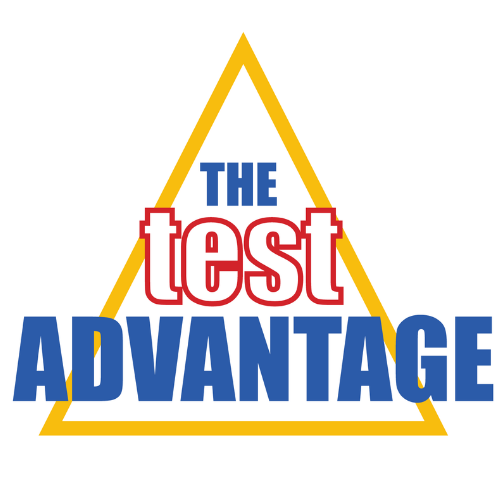Our Test Categories
Digital SAT Vocabulary set 5
WATCH THE VIDEO. Using TheTestAdvantage.com is an excellent way to prepare for your Digital SAT, EST Test, and ACT exams, specifically for enhancing your vocabulary skills.
Your Test History
Please log in to view your test history.
Test Description
Using TheTestAdvantage.com is an excellent way to prepare for your Digital SAT, EST Test, and ACT exams, specifically for enhancing your vocabulary skills. The website offers a wide range of vocabulary practice exercises and quizzes designed to help you improve your understanding of key terms and concepts that are commonly tested on these exams. Whether you are a high school student getting ready for college admissions tests or an adult looking to improve your language skills, TheTestAdvantage.com provides a user-friendly and comprehensive platform to help you achieve your goals. With TheTestAdvantage.com, you can access a variety of study resources, including flashcards, quizzes, and practice tests that focus on the specific vocabulary words tested on the Digital SAT, EST Test, and ACT exams. The website's adaptive learning technology also helps you identify your strengths and weaknesses, enabling you to focus your study efforts where they are most needed. By using TheTestAdvantage.com to prepare for your Digital SAT, EST Test, and ACT exams, you can gain the confidence and skills needed to succeed on test day. So, if you are looking for a comprehensive and effective way to improve your vocabulary skills and boost your test scores, give TheTestAdvantage.com a try today! 1. Instructors: people who teach or instruct others in a particular subject or skill. 2. Administrators: people who are responsible for managing and organizing a company, institution, or organization. 3. Monitors: people who observe and check something regularly over a period of time, often to make sure that it is working correctly or to detect any problems. 4. Benefactors: people who provide help or financial support, especially to a person or organization. 5. Rebellious: showing a desire to resist authority, control, or convention. 6. Impulsive: acting or done without forethought or planning; hasty or rash. 7. Artistic: having or revealing natural creative skill. 8. Industrious: diligent and hard-working. 9. Indulged: allowed oneself or someone else to enjoy something to excess, especially when it is not beneficial. 10. Verified: confirmed or proved to be true. 11. Usurped: taken or used by force or without legal authority. 12. Expressed: conveyed through spoken or written words or actions. 13. Circumscribed: restricted or limited. 14. Bolstered: supported or strengthened. 15. Embellished: made something more attractive or interesting by adding decorations or extra details. 16. Insinuated: suggested or hinted at something in an indirect or unpleasant way. 17. Profitable: yielding a financial profit or gain. 18. Generous: showing kindness and concern for others. 19. Onerous: involving a great deal of effort or difficulty. 20. Inspired: filled with the urge or ability to do or feel something creative or productive. 21. Entrusted: assigned with the responsibility of doing something or caring for someone. 22. Honored: respected or admired deeply. 23. Employed: having a paid job. 24. Depicted: shown or represented by a drawing, painting, or other art form. 25. Displayed: arranged or presented in a particular way to be seen or noticed. 26. Captured: caught or seized and held prisoner. 27. Domesticated: tamed and kept as a pet or on a farm. 28. An innovator: a person who introduces new methods, ideas, or products. 29. An emblem: a symbolic object or representation that stands for a group or organization. 30. A successor: a person who follows another in a position of power or authority. 31. A detractor: a person who criticizes or speaks ill of someone or something. 32. Useless: having no practical use or advantage. 33. Mild: gentle and not easily provoked or upset. 34. Curative: able to cure or heal. 35. Harmful: causing or likely to cause harm or injury. 36. Defunct: no longer existing or functioning. 37. Unorthodox: contrary to what is usual, traditional, or accepted. 38. Simplistic: treating complex issues and problems as if they were much simpler than they really are. 39. Erroneous: incorrect or based on false information. 40. Apportionment: the act of dividing something into portions or shares. 41. Distribution: the act of giving out or spreading something over a wide area. 42. Expropriation: the taking of property by a government or other authority without the owner's consent, usually for public use or benefit. 43. Reparation: the act of making amends, especially for a wrong or injury. 44. Dumbfounded: greatly astonished or amazed. 45. Distracted: unable to concentrate or focus one's attention. 46. Hesitant: pausing or delaying before acting or speaking. 47. Traveled: having traveled to many different places or countries. 48. Spoke: past tense of speak, meaning to express oneself verbally. 49. Protested: expressed strong objection or disapproval. 50. Roamed: moved about or wandered freely. 51. Effective: successful in producing a desired or intended result. 52. Benign: gentle, kindly, and not harmful. 53. Toxic: poisonous or harmful. 54. Fatal: causing death or disaster.
